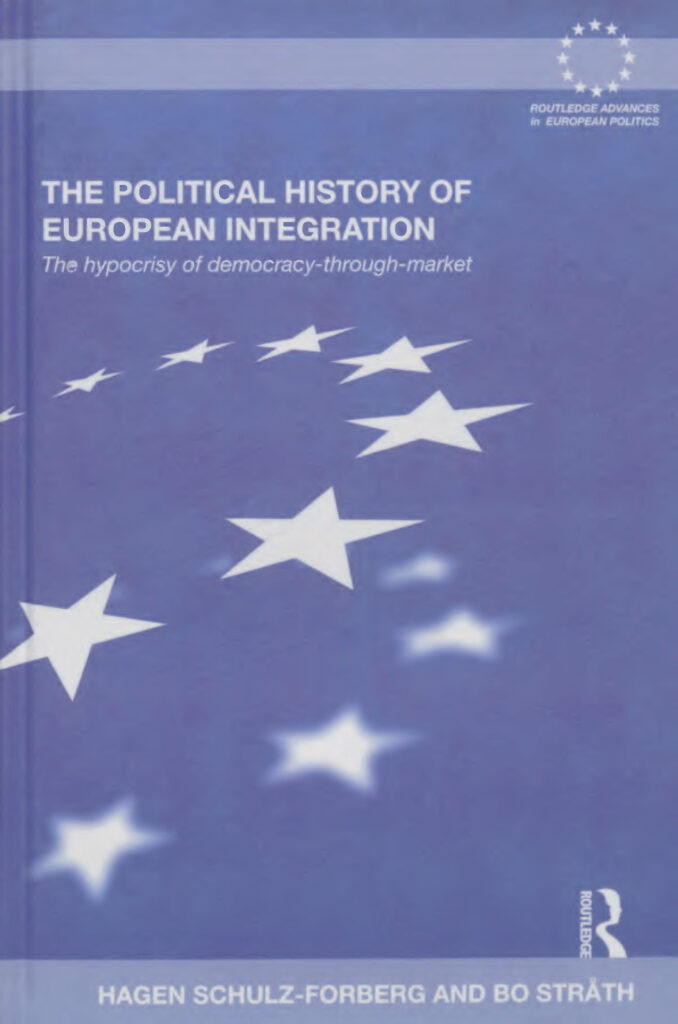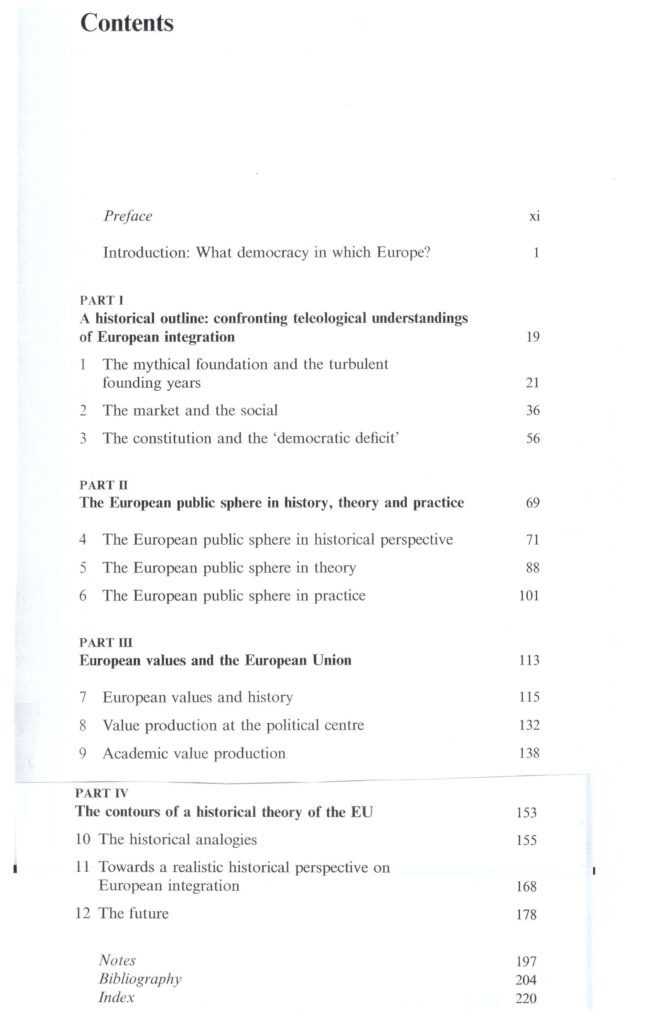The hypocricy of democracy-through-market. London: Routledge 2010.
Co-authored with Hagen Schulz-Forberg

Abstract
The Maastricht Treaty in 1992 was based on neoliberal ideas of a market-driven European
economy and democracy and continues to be seen as a new step towards a new stage of
unification: towards a more federal Europe based on market integration. The book
demonstrates that European integration as a federal project actually ended around that time.
Harmonization of rules between the member states accompanied the work on the Maastricht Treaty. Harmonization connoted federal ideas and harmonization along the most ambitious standards. However, soon after 1992, the rhetoric of harmonization shifted to one of benchmarking, open methods of coordination, and best practices with promises of competition for market power through lowing social standards. Democracy would not come from high social standards and public welfare but from the market.
The European Economic Community (EEC), the precursor of the EU, was never
thought of as a democracy. The book locates a shift in thinking about legitimacy and further
integration in the 1980s when the idea of a European democracy was connected with a plan
for the internal market: the market would pave the way for democracy. Since then, there has
been growing tension between the official line about a democratic EU and the institutional
capacity to carry it through. This tension has undermined integration. The book suggests that,
instead of democracy through the market, there are signs of increasing social disintegration,
political extremism and populism in the wake of economic integration. The book argues for a
more realistic historical understanding of European integration.






































